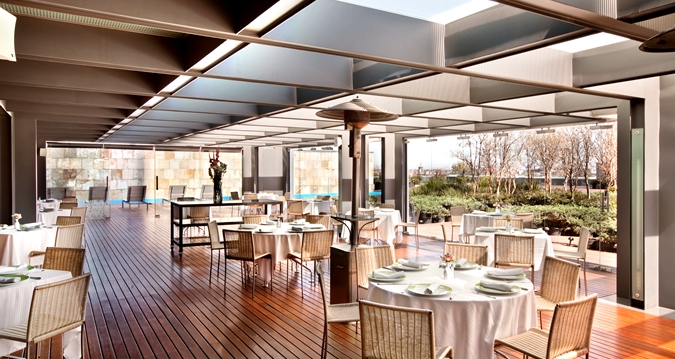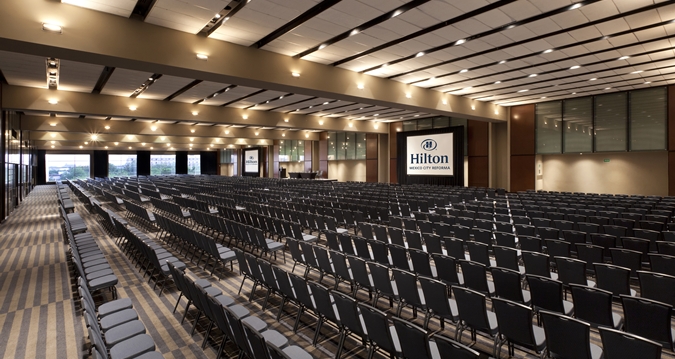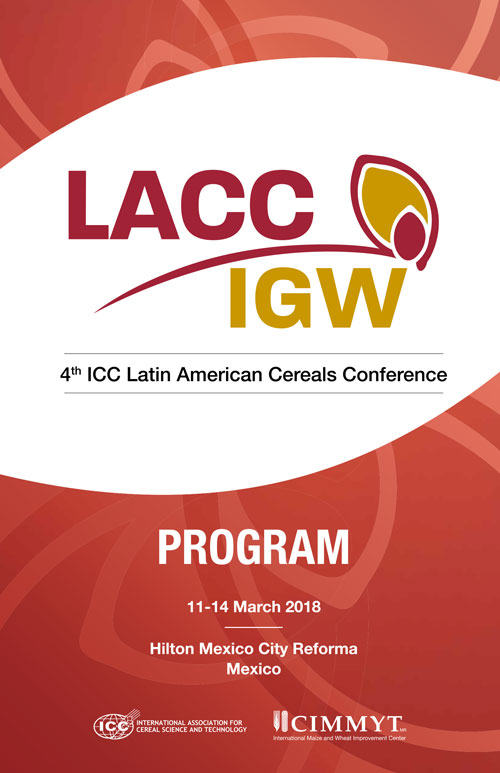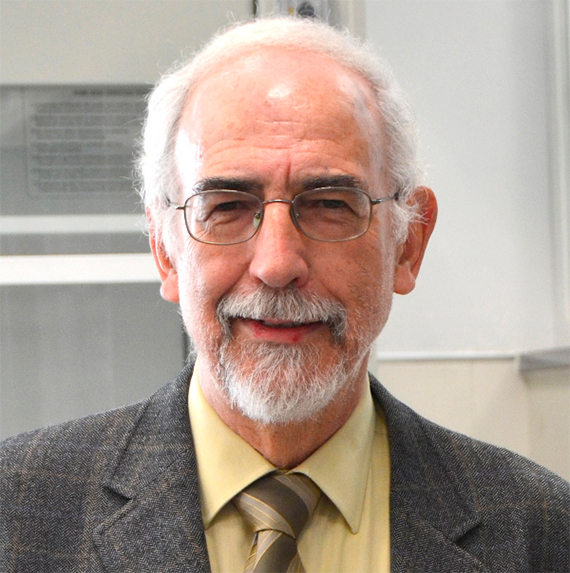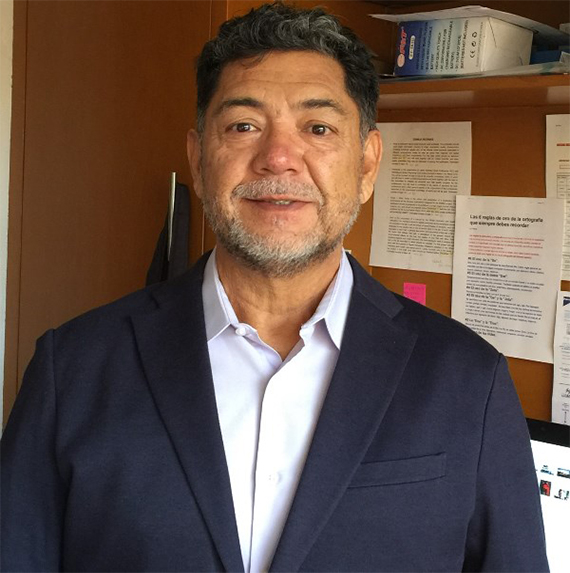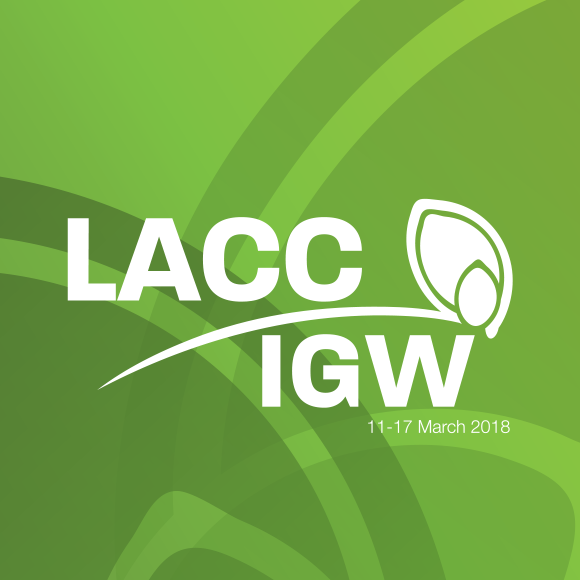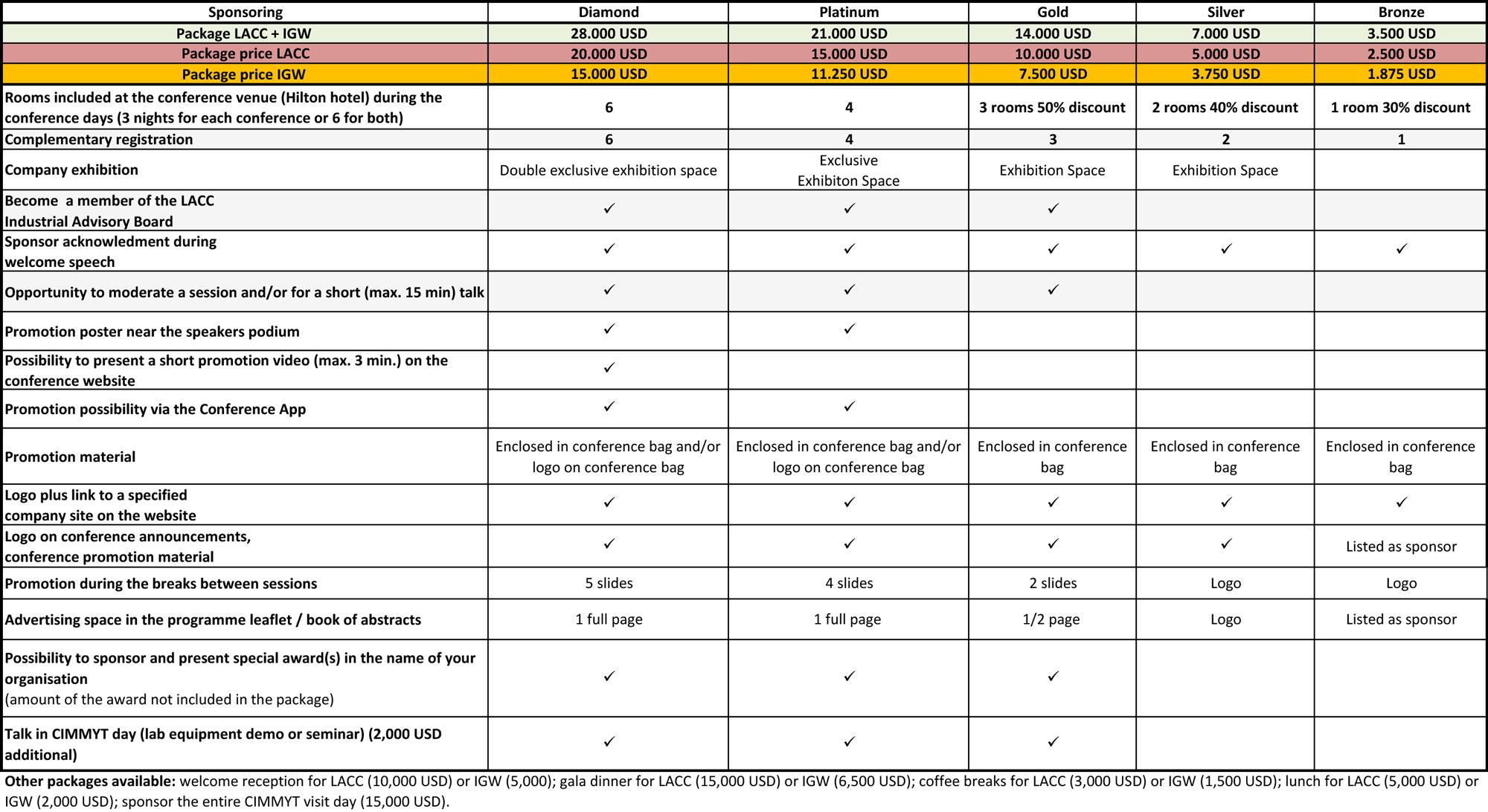banner english
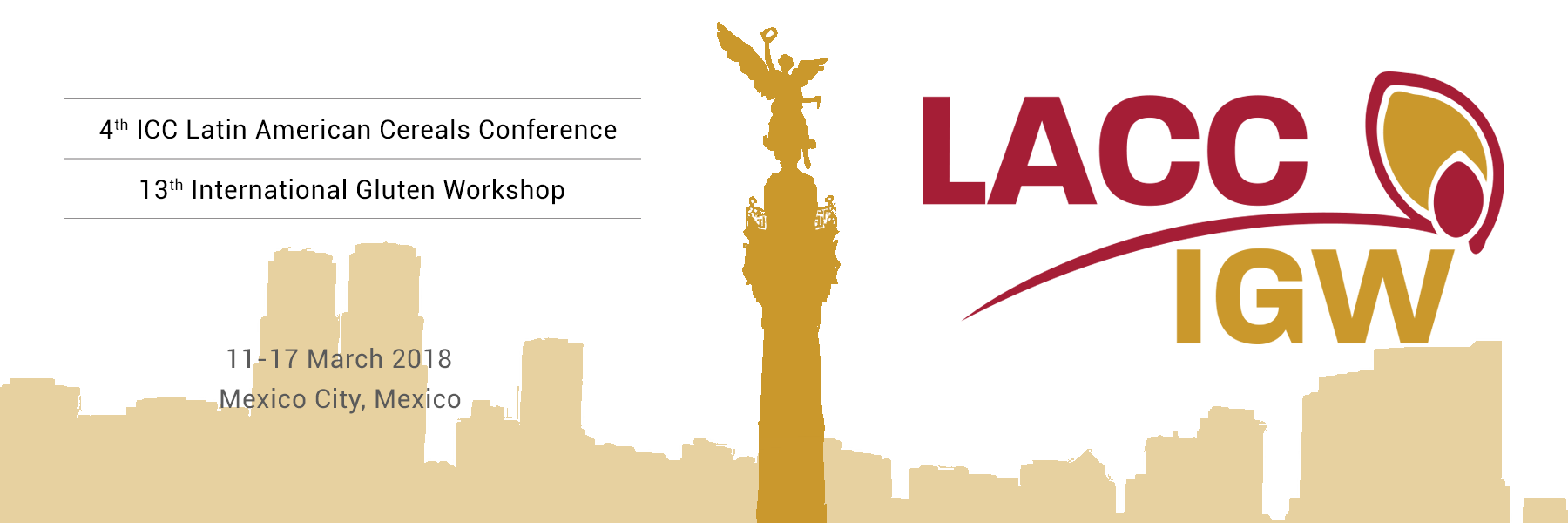
Menu EN
Cereal science and technology in Latin American will be in the spotlight in March 2018 in Mexico City when ICC and CIMMYT collaborate on two renowned international events! For the first time, CIMMYT-International Maize and Wheat Improvement Center will host the:
- LACC4 – 4th ICC Latin American Cereals Conference 11-14 March 2018, which will be organized together with ICC-International Association for Cereal Science and Technology as well as the
- IGW – 13th International Gluten Workshop 14-17 March 2018.
Both conferences will be held at the Hilton Mexico City Reforma in Mexico City. CIMMYT was selected as the host institute for LACC4 and IGW because of its long history of impactful research in cereals and in breeding.
4th ICC Latin American Cereals Conference
11-14 March 2018
The 4th ICC Latin American Cereals Conference is an international conference that promotes scientific and technological knowledge related to the production of grains, cereals and food and is aimed at professionals connected to the value chains of grains and cereals, from agricultural production to the food industry and consumers:
- Cereal scientists and researchers from agriculture and food research centers
- Universities and academia
- Food industry professionals in research and development, production and quality areas
- Policy makers from government institutions
- Trade associations connected to the food industry
At LACC4 researchers from around the world will present on themes related to the productive chain of grain:
- Quality and quality assessment
- Cereal processing technologies
- Cereal foods
- Nutrition and health
- Food safety and food security
- Recent developments in breeding and agronomy
- Food legumes
- Feeds and animal feeding
13th International Gluten Workshop
14-17 March 2018
The 13th edition of the International Gluten Workshop is organized with the ambitious objective of making this event the most important wheat quality conference for the global community. The IGW will focus on the latest in all wheat quality topics (not only gluten) and is designed for all grain quality scientists, nutrionists, breeders, agronomists, and professionals in the seed, milling and food industries. Researchers from around the world will report on progress made in topics such as:
- Contribution of wheat grain components and their interactions to industrial and nutritional quality (gluten proteins, carbohydrates, lipids, bioactive components, enzymatic activity)
- Innovations on the analysis of wheat quality parameters: technologies and methodologies.
- Progress in milling and processing technologies
- End-use quality of bread and durum wheat and other cereals possessing gluten-like proteins
- Genetics and breeding for wheat processing and nutritional quality improvement
- Industrial and non-food uses of gluten
- Health benefits of wheat and gluten adverse reactions
- Deploying genetic resources for end-use and nutritional quality improvement
IGW and CIMMYT will use this global reach to establish networks and define future projects to face the current challenges in the field.
On 14 March, the day in between both conferences, a visit to CIMMYT Headquarters in Texcoco (35 km from Mexico City) is scheduled, in which the participants will have the opportunity to learn about this international institution and its projects and to interact with CIMMYT scientists.
In addition, after the conferences, attendees are invited to visit the world-class wheat breeding facilities of CIMMYT in Ciudad Obregón, Sonora (2-hour flight from Mexico City), during the Global Wheat Program Visitors Week (20-22 March). At this annual event, wheat breeders, pathologists, agronomists, and scientists in other disciplines meet annually in Ciudad Obregón to learn more about CIMMYT’s wheat breeding program and to establish new networks of collaboration and projects.
Present your work and your company to experts in the Latin American region. We look forward to welcoming you in Mexico!
-
Hamit Koksel
Chair of LACC4 and ICC President
Hacettepe, Turkey -
Michaela Pichler
Secretary General | CEO
ICC, Austria -
Jennifer Nelson
Global Wheat Program Manager
CIMMYT, Mexico -
Carlos Guzman
Chair of IGW
CIMMYT, Mexico
About the organizers
CIMMYT
CIMMYT – The International Maize and Wheat Improvement Center – is the global leader in publicly-funded maize and wheat research and related farming systems. Headquartered near Mexico City, CIMMYT works with hundreds of partners throughout the developing world to sustainably increase the productivity of maize and wheat cropping systems, thus improving global food security and reducing poverty. CIMMYT is a member of the CGIAR System and leads the CGIAR Research Programs on Maize and Wheat, and the Excellence in Breeding Platform. The Center receives support from national governments, foundations, development banks and other public and private agencies.
International Association for Cereal Science and Technology
ICC is an independent, internationally recognized organisation of experts specialising in the milling of wheat and other cereals, bread making, and the production of other cereal-based foods from around the world. In more recent times ICC has expanded its focus to address issues that contribute to improved food quality, food safety and food security for the health and well-being of all people. ICC is an apolitical forum for all cereal scientists and technologists, a publisher of international standard methods and a scientific journal, an organiser of major national and international events in the field, a promoter of international cooperation on a global, regional and national level as well as a significant player in the coordination and participation in international research projects.
The City
Mexico City is the capital and most populous city of Mexico. This city is one of the most important financial and cultural centers in the Americas. Named as “the metropolis that has it all” by the New York Times, Mexico City allows you to penetrate its streets and encounter their historical past; it offers bohemian corners nestled in traditional bars and restaurants that have become a haven for travelers and locals alike. It transports you to a surreal world comprised of the eclectic mix of wrestling matches, grand baroque aesthetic, and luxurious palaces. It has an incredibly diverse nightlife, where you will find everything from unconventional clubs to typical canteens, and venues that offer a cosmopolitan flavor, which represents but a fragment of the complex cultural mosaic that converges in this city. It comes as no surprise that it is considered one of the most exciting cities to visit. Mexico City is a destination with an extraordinary mysticism that revels in its overlapping plurality, folklore, and modernity; everything here is an intermixture, its pre-Hispanic roots present in its foundations, as shown by the Metropolitan Cathedral that sits on top of the pyramid of Tonatiuh. Everybody loves Mexico City, and so will you!
Event location
The activities of LACC4 and IGW will take place at Hilton Mexico City Reforma, a convenient downtown location, just footsteps from the historical downtown and the famous Reforma Avenue. Hilton Mexico City Reforma boasts 45,000 sq. ft. of flexible meeting space and a versatile convention center for up to 5,000 Guests. A top choice for business travelers, the hotel provides flexible meeting spaces, dining options and panoramic views all within steps of businesses and offices.
Address: Av. Juarez #70. Colonia centro, Ciudad de Mexico, 06010, Mexico
-
View panoramico
-
View terrace
-
View convention center
CONFIRMED SPEAKERS LACC4 – 4th ICC Latin American Cereals Conference
| Martin Kropff | Director General, CIMMYT, Mexico | Global food security and role of CIMMYT | |
| Gordon Smith | Head of Department of Grain Science and Industry, Kansas State University, USA | Flour safety, challenges and innovation | |
| Wolfgang Pfeiffer | Director R&D, HarvestPlus, USA | Harvestplus Alliance: Research, Development and Delivery of Micronutrient Dense Crops | |
| Martha Cuniberti | Head and Technical Director of Wheat and Soybean Quality Lab, INTA, Argentina | Importance of Argentine wheat production and quality in Latin America. | |
| Jan Willem van der Kamp | Senior Officer, TNO and Wageningen Research, the Netherlands | Whole Grain Dietary Recommendations and Coming to Agreement on Definitions | |
| Nese Sreenivasulu | Head of Grain Quality and Nutrition Center, IRRI, Philippines | Novel Phenotyping Tools to Assess Glycaemic Potential of Rice Germplasm | |
| Caroline Sluyter | Program Director, Whole Grains Council, USA | Making Whole Grains the New Norm: Changing Consumer Attitudes & Perceptions in Latin America and Around the World | |
| B.M. Prasanna | Director of Global Maize Program, CIMMYT, Kenya | Maize-based food and nutritional security in the developing world | |
| Daniel Guerrero | LATAM Nutrition and Regulatory Affairs Manager, Cereal Partners Worldwide, Mexico | Attitudes to whole grain foods, their benefits and liking: insights from consumers in Mexico, Colombia and a global perspective | |
| Ahmed Regina | Research Team Leader, CSIRO, Australia | High amylose wheat: a route to healthier foods. | |
| Natalia Palacios | Head of Maize Quality lab, CIMMYT, Mexico | Biofortified maize: progress and perspectives. | |
| Julie Jones | Distinguished Scholar and Professor Emeritus, St Catherine University, USA | Whole Grains: Just for the Health of It | |
| Michaela Pichler | Secretary General / CEO , ICC, Austria | A Global Movement to Increase Whole Grain Intake – Plans and Actions | |
| Marcus Loens | Director Food Division, Brabender, Germany | New solutions to automate and optimize quality control and lab analytic | |
| Cristina M. Rosell | Director, IATA-CSIC, Spain | Making healthier cereal foods by applying physical treatments | |
| Juan de Dios Figueroa | Professor, CINVESTAV, Mexico | Evolution of nixtamalization process: advantages and disadvantages. | |
| Larisa Cato | Wheat Quality Technical Markets Manager, AEGIC, Australia | Sponge & dough baking with Australian wheat. | |
| Luis Bello Pérez | Professor, Instituto Politecnico Nacional, Mexico | Retrospective study of starch digestibility in corn tortilla. | |
| Luis Alberto Ramírez Barajas | Industry Technology Specialist Novozymes, Mexico | Introduction to baking enzymes | |
| Hans Braun | Director of Global Wheat Program, CIMMYT, Mexico | Beyond the Gluten Debate: Wheat as a Staple Crop in the Developing Country and Its Increasing Importance | |
| Jos Van Boxtel | Principal Scientist, Arcadia Biosciences, USA | Enhancing shelf life and flavor of whole wheat flour | |
| Pedro Luiz Scheeren | Researcher, EMBRAPA, Brazil | Biofortification in Brazil: iron and zinc concentration in grains on wheat cultivars grown in different environments. | |
| Senay Simsek | Bert L. D'Appolonia Cereal Science and Technology of Wheat Endowed Associate Professor, North Dakota State University, USA | Mycotoxins and health | |
| Simon Fonteyne | Cropping Systems Agronomist, CIMMYT, Mexico | MASAGRO´s participative research network across Mexico: adapting conservation agriculture to local conditions | |
| Gideon Kruseman | Socio-economics, CIMMYT, Mexico | Milling quality: the Achilles heel of cereal foresight studies? |
CONFIRMED SPEAKERS IGW – 13th INTERNATIONAL GLUTEN WORKSHOP
| Tatsuya Ikeda | Senior Researcher, NARO, Japan | International collaboration on wheat quality and safety. | |
| Craig Morris | Director, USDA-ARS Western Wheat Quality Lab, USA | Enhanced gluten properties in soft kernel durum wheat. | |
| Julie Miller Jones | Distinguished Scholar and Professor Emeritus, St Catherine University, USA | Gluten: facts, factoids, and fallacies | |
| Mike Sissons | Head of Durum Chamistry, NSW Department of Primary Industries | Can manipulation of the glutenin composition of durum wheat improve bread loaf volume and still maintain pasta quality? | |
| Markus Brunnbauer | Product development , Backaldrin International The Kornspitz Company | Modern applications of vital gluten in bakery products and higher demands for its quality. | |
| Alison Lovegrove | Senior Research Scientist, Rothamsted, UK | Exploiting natural and induced variation to improve the content and composition of dietary fiber in wheat grain. | |
| Susan Altenbach | Research Biologist, USDA-ARS Western Regional Research Center,USA | Biotechnology and breeding strategies for the development of wheat with reduced allergenic potential. | |
| Jos Van Boxtel | Principal Scientist, Arcadia Biosciences Inc., USA | Reduced gluten and increased lysine levels by single gene disruption in wheat. | |
| Senay Simsek | Bert L. D'Appolonia Cereal Science and Technology of Wheat Endowed Associate Professor, North Dakota State University, USA | Immunomodulatory activities of wheat arabinoxylan hydrolyzates. | |
| Wujun Ma | Professor, Murdoch University, Australia | Characterization of cysteine-rich avenin-like proteins in common wheat. | |
| Jayne Bock | Global Technical Leader of the Food Division, Brabender Instruments, USA | Development of a method to evaluate the quality of vital wheat gluten for bread baking using a high shear technique. | |
| Maryke Labuschagne | Professor, University of the Free State, South Africa | Proteomics in wheat gluten research: where are we standing and where are we going? | |
| Sewa Ram | Principal Scientist and Head of Wheat Quality lab, ICAR-Indian Institute of Wheat and Barley Research, India | Assessment of genetic variability and development of high phytase and low phytic acid genotypes in wheat. | |
| Bin Xiao Fu | Research Scientist and Program Manager at the Grain Research Laboratory Canadian Grain Comission, Canada | Rapid assay for functional protein fractions in wheat flour or wholemeal | |
| Till Pellny | Senior Research Scientist, Rothamsted, UK | Developing new types of wheat with good processing quality at low grain protein content. | |
| Barbara Laddomada | Researcher, CNR ISPA, Italy | Variability in phenolic acid composition and content in a collection of CIMMYT durum wheat cultivars and Mexican landraces. | |
| Zhonghu He | Distinguished Scientist and Country Liaison Officer, CAAS-CIMMYT, China | molecular marker development and application for improving qualities in bread wheat. | |
| Marianna Rakzesgi | Leader of Wheat Quality lab, Centre for Agricultural Research, Hungary | Aegilops as a source of dietary fiber and drought stress tolerance. | |
| Gilberto Igrejas | Professor of Genetics and Biotechnology and Head of the Functional Genomics and Proteomics Unit, University of Trás-os-Montes and Alto Douro, Portugal | Proteomics to assess the quality of the Portuguese bread wheat. |
Martha Cuniberti
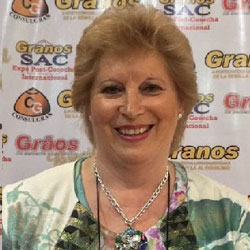
Martha Cuniberti is a Chemical Engineer and Doctor in Agricultural Sciences in Córdoba University. Argentina. Specialist in Cereal Science and Technology. Head and Technical Director of INTA Wheat and Soybean Quality Lab. ICC Latin American Region Founder and Representative, National Delegate, ICC Executive Committee Member and Academy Honorary Member. In 2007 she was the President of the 1st LACC in Rosario, Argentina. She has received important recognitions to her professional work inside and outside of the country and in 2008 received the "Friedrich Schweitzer Medal" to the prominent scientist in Madrid, Spain.
Her talk entitled Importance of argentine wheat production and quality in Latin America will be focused on: Argentina is the main producer and exporter wheat country of Latin America with a production of 18,4 million ton in 2017. It has genetics for specific uses and demands: red and white hard wheat for bread baking with three quality levels (98% of its production), durum wheat for pasta (1.5%), soft white wheat for biscuits and cakes and waxy wheat for modified starch industry. Since 1998 has an annual Official Crop Quality Report (www.trigoargentino.com.ar)
Caroline Sluyter
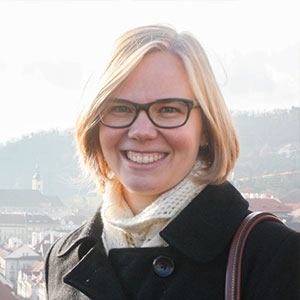
Caroline Sluyter holds a Master of Science in Agriculture, Food and Environment (Tufts University, Friedman School of Nutrition Science and Policy, Boston). Currently she is the Program Director of Whole Grains Council. She is responsible for creating and executing special whole grain promotions, and for planning and managing our biennial Whole Grains Conference. She also provides supervision and support to the Whole Grain Stamp program manager and manages the financial aspects of the Stamp program and delivers domestic and international presentations on whole grains and related topics to academic and industry audiences.
Her presentation is entitled “Making Whole Grains the New Norm: Changing Consumer Attitudes & Perceptions in Latin America and Around the World”. Despite overwhelming evidence that we should be eating more whole grains, populations around the world struggle to meet recommended levels of intake. This session will identify consumer perception challenges and will present several models of success for changing consumer attitudes. It will discuss strategies that any community can implement, no matter where its people fall on the continuum of whole grain acceptance.
Daniel Guerrero
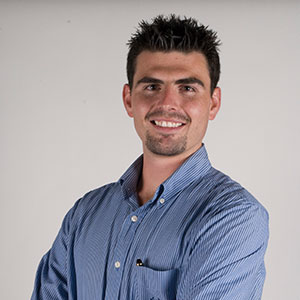
Daniel Guerrero studied Nutrition and Food Sciences in the Iberoamerican University at Mexico City, afterwards he studied a master degree in Marketing and has 13 years of experience working for the food industry. Currently he manages Nutrition and Regulatory Affairs for Latin America in Cereal Partners Worldwide, a long standing partnership between General Mills and Nestlé to produce and commercialize the Nestle Breakfast Cereals, translating nutrition sciences into consumer understanding, ensuring regulatory compliance and guiding the company on their purpose of making breakfast better through the improvement of the nutrition profiles of products, promoting the benefits of breakfast and a diet sufficient in whole grains.
In his talk “Attitudes to whole grain foods, their benefits and liking: insights from consumers in Mexico, Colombia and a global perspective" he will cover an overview of the consumer perspective for whole grain, while it is relevant for them, they don’t know where to find it or how much to eat, highlighting the need to help consumers identify how much Whole Grains they should eat, identify Whole Grain food sources, educate them on its benefits and provide reassurance on the taste of Whole Grain options.
Julie Miller Jones
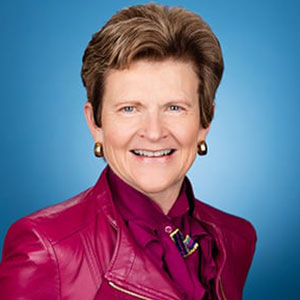
Julie Miller Jones is a Distinguished Scholar and Professor Emeritus of nutrition in the Department of Family, Consumer and Nutritional Sciences at the St. Catherine University in St. Paul, Minnesota, USA. She is a scientific advisor for many organizations including the EU HealthGrain Platform on Whole Grains, Carbohydrates and Dietary Fibre, the Joint Institute of Food Safety and Nutrition for the University of Maryland and the US Food and Drug Administration, the carbohydrate committee of the International Life Sciences Institute of North America, the Grains Food Foundation, and the California Fig Advisory Board. Also, Jones is actively involved in trying to educate the consumer against frauds and myths in nutrition and food safety; she has authored Food Safety (Eagan Press) and edited a book Dietary Fibre: Food and Feed and Bio-active Ingredients.
Her talk “Whole Grains: Just for the Health of It” Julie will speak about the benefits of whole grains. Those eating diets with the right balance of whole grains and refined grains show repeatedly in epidemiological studies to be associated with reduced risk for most diseases. In nearly all epidemiological studies the grain foods ingested are designated by the NOVA scheme as ‘processed' or ‘ultraprocessed’. Diets that recommend consumers avoid processed and ultraprocessed foods could impair intake of various nutrients, dietary fiber, grains and whole grains. Consumers need to be encouraged to choose all forms of grains and select the right balance of whole and refined grains as part of a balanced diet for optimal health and reduced risk of disease.
Cristina M Rosell
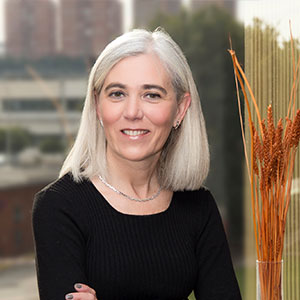
Cristina M Rosell is a Full Research Professor in the Institute of Agrochemistry and Food Technology (IATA) that belongs to the Spanish Council for Scientific Research (CSIC). In 2015 she was appointed Director of IATA. She is also an Associated Professor of the University of Valencia (UV). She has been involved in numerous National, European and International research projects related to cereals and baked goods. She developed an extensive activity in transferring knowledge through a close cooperation with stakeholders mainly dealing with the inclusion of cereals in the human diet through developing innovative and sensory accepted cereal based products based on comprehensive utilization and rational modulation of their biochemical and rheological properties. She is the President of Spanish Association of Cereal Science and Technology (AETC), and member of the American Association for Cereal Chemists (AACC). Regarding scientific activities, she has more than two hundred international peer reviewed scientific publications and book chapters on the cereals topic. Main research topics include: to enhance the marketability and healthfulness of cereals and grains commodities and processed products to meet consumer and producer demands. Biochemistry, rheology, quality and nutritional attributes, and consumer preferences are main areas of research. A holistic approach is applied in all the research projects.
In her talk entitled “making healthier cereal foods by applying physical treatments”, she would like to share with all attendees the benefits of consuming bread and the alternatives we have to improve them nutritionally by using nutritious raw materials. In addition, approaches to physically modulate the digestibility properties of the resulting breads will be discussed.
Juan de Dios Figueroa
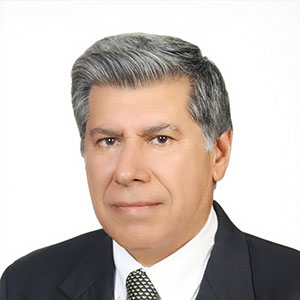
Dr. Figueroa (Juan) works with the Bio-organic Materials group at CINVESTAV (Center for Research and Advanced Studies campus Querétaro, Mexico), before that he worked 9 years for the malting and brewing industry in Mexico. He has published more than 180 scientific articles and 26 patents, some of which are in commercial use around the world. Juan explores the basic principles that govern functionality of grains for industrial applications, especially for tortilla, malting, brewing and wheat. His areas of special expertise are the Maxwell (stress relaxation) and Kelvin-Voigt (creep) generalized models as well as dynamic rheology (G´and G’’) for studying visco-elastic properties, and high fiber-low fat tortillas to prevent obesity, diabetes type II and cardiovascular diseases; Ultrasound, Microwave, Infrared and other non-conventional energies in grains and food processing. For characterization of bio-materials he uses FTIR, Impedance, ultrasound, X-ray diffractions, SEM, DSC, ohmic heating among other techniques. In the last 6 years he received the Texture Technology Award from AACC International. In 2012, 4th International Nixtamalization Congress awarded him with “Dios Yum Kaax” for developing an ecological nixtamalization process to produce whole-grain corn tortilla and the award “Francisco Vela” from San Carlos University of Guatemala. Juan also received the “Premio Alejandrina” (award) 2012 for the elaboration of Intelligent nanoparticles for encapsulation, and controlled release of bioactive compounds. In 2014 he got the Carl Wilhem Brabender award from AACC International. He graduated from North Dakota State University (M.Sc. and PhD in Cereal Science & Technology) and (B.Sc. in Industrial Chemistry) from “Universidad de Tamaulipas” Mexico.
His talk “Evolution of nixtamalization process: advantages and disadvantages” is about nixtamalization. Nixtamalization is perhaps the most important technology for processing thousands of corn products for human consumption. Today, with the increasing of popularity of Mexican foods around the world, there is scientific interest in the topic. During nixtamalization changes at protein, starch and lipid levels are important for ensuring quality of end-products. He will present a summary of those technological developments.
Larisa Cato
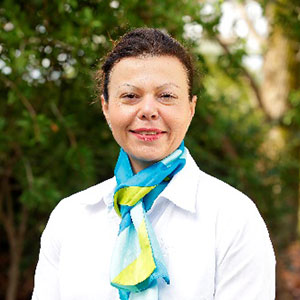
Larisa Cato is a cereal chemist and grain researcher, well versed in the wheat quality requirements of Australian international markets. Larisa is internationally recognized as an expert in the field of wheat quality and end product requirements. Larisa possesses a unique set of skills combining scientific, technical and market expertise. Prior to joining AEGIC, Larisa worked as an Asian Product Specialist with AWB Ltd. and with the Department of Agriculture and Food WA to ensure the WA wheat industry was internationally competitive.
Her talk “Sponge & dough baking with australian wheat” will discuss typical baking processes used in SEA, addressing wheat quality requirements to match desired product quality. Specifically the presentation will discuss use of Enzymes in a sponge & dough baking system to improve end product quality. Bread quality will be discussed in terms of bread volume, crumb structure and crumb softness.
Luis Arturo Bello
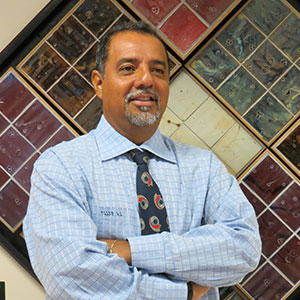
Luis Arturo Bello has been professor for more than 30 years at the Center for Development of Biotic Products of at the Instituto Politécnico Nacional located at Yautepec, Morelos, Mexico. He has been responsible of developing mainly with external funds the best research center for starch and other polysaccharides research in this country. Dr. Bello has developed research ties with many professors associated to universities in Mexico and distributed throughout the globe. He spent several years performing postdoctoral and research residences in the USA (Purdue University and University of Illinois), France (INRA-NANTES), England (University of Nottingham). He has published more than 300 papers in refereed recognized international journals, mostly on his main area of expertise: starch/polysaccharides chemistry and technology and their implications on human health. His publications with a current h factor of 36 have been cited more than five thousand times according to the data base of Scopus. He has become one of the main starch scientists worldwide and reached the most prominent positions in the Mexican National Research System (SNI III) and Mexican Academy of Sciences. He has been associate editor for relevant Journals such as Cereal Chemistry, Starch/Starke, J. Cereal Sci., J. Sci. Food & Agric., Plant Foods for Human Nutrition, CyTA-Journal of Food and Revista Mexicana de Ingenieria Quimica. As a result of his scientific impact, Dr. Bello has been the recipient of many distinguished awards including the national “Coca Cola Award” for the most prominent Mexican food scientist.
His talk “Retrospective study of starch digestibility in corn tortilla” will be focused on starch. Starch digestion in foods is a topic that has been increased the interest due to its relationship with health problems. Tortilla is a starchy food and its consumption was related to high starch digestibility with the concomitant increase of glucose supply to the blood; however, tortilla can contain resistant and slowly digestible starch, both associated with some health benefits.
Luis Alberto Ramírez Barajas
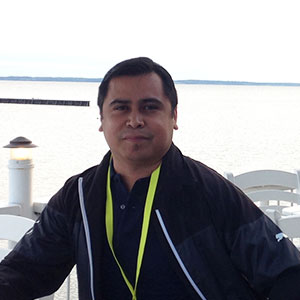
Luis Alberto Ramírez Barajas is currently a Industry Technology Specialist of Food & Nutrition and Baking in Novozymes México. More than 8 years of experience in the design, development and implementation of product development projects focused on the baking area, dairy industry and products based on chili and emulsions. Leader of different technology transfer projects and process adaptation. Experience in research on emerging technologies projects for vegetables conservation. Food Engineer from Tecnológico de Monterrey.
His presentation “Introduction to baking enzymes” will give information on basic enzyme chemistry, how enzymes are produced and utilized in variety of baking applications.
Jos van Boxtel
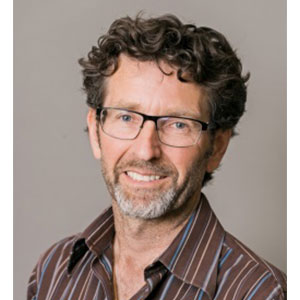
Jos van Boxtel holds a Ph.D. in Agricultural Sciences/Plant Breeding from Wageningen University in the Netherlands. His Ph.D. research work was conducted at CIRAD, Montpellier, France, studying the genetic transformation of coffee. From 1995 to 1999 he was a post-doc studying virus resistance in cowpea through genetic engineering at the John Innes Centre in the UK. From 1999 to 2002, he returned to CIRAD, this time studying salt and drought tolerance in rice through genetic engineering. And before joining Arcadia in 2003, he had worked at UC Davis on salt tolerant rice. In addition to production of transgenic plants for the various Arcadia projects, his Plant Transformation Group works on innovating plant gene modification techniques which can be used for enhancing environmental and health benefits of agricultural crops. Currently, Jos is leading projects to develop non-GM low gluten wheat and heat stress tolerant wheat at Arcadia.
His presentation entitled “Enhancing shelf life and flavor of whole wheat flour” will be focused on: Reducing the production of bitter and rancid compounds that accumulate during whole wheat flour storage could help improve consumer acceptance, consumption of whole grain wheat products and benefit millers and bakers by increasing the shelf life. New wheat varieties with these characteristics have been developed using TILLING (Targeting Induced Local Lesions in Genomes), a non-transgenic method for novel trait development.
Senay Simsek
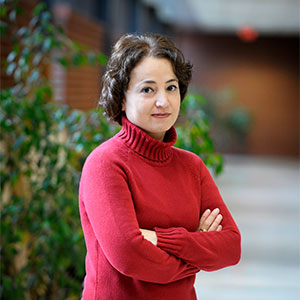
Dr. Senay Simsek is a professor at North Dakota State University (NDSU). She moved to the USA in 2002 and started her PhD in Food Science at Purdue University. She completed her PhD in December 2006 and started working as an assistant professor in Plant Sciences Department at NDSU in January 2007. She has leadership position in Hard Spring Wheat (HSW) quality laboratories at NDSU. She has authored and co-authored hundreds of research papers, and conference contributions in the area of wheat quality, mycotoxin analysis and carbohydrate chemistry. Her program works with wheat breeding programs to insure that high quality varieties with good disease package would be released. She is an active member of the America Association of Cereal Chemists International (AACCI), a member of the AACCI Carbohydrate Division, and a member of the Wheat Quality Council (WQC), and also serves on Spring Wheat Technical board of Wheat Quality Council. In 2011, Dr. Simsek was awarded the Larson/Yaggie Excellence in Research Award 2011 by the NDSU College of Agriculture and the Early-in Career Award of Excellence during the U.S. Quality Grains Research Consortium annual meeting. She is the recipient of the 2013 AACC-I Young Scientist Research Award. The first North Dakota State University Bert L. D’Appolonia Endowed Associate Professorship in Cereal Science and Technology of Wheat has been awarded to Dr. Simsek in August, 2013.
Dr. Simsek’s presentation “Mycotoxins and health“ will provide insight into the common mycotoxins found in wheat grain their toxicity for humans. Her presentation will focus on deoxynivalenol (DON) and deoxynivalenol-3-β-d-glucopyranoside (D3G).
Simon Fonteyne
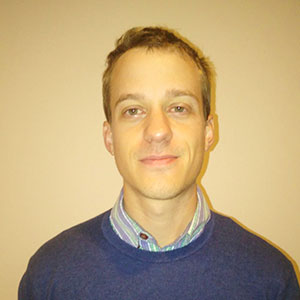
Simon Fonteyne is a cropping systems agronomist at the International Maize and Wheat Improvement Center (CIMMYT) and coordinates a network of agronomic research trials in various projects across Mexico. Before working at CIMMYT he did a Ph. D. at Ghent University and the Flemish Institute for Agricultural and Fisheries Research in Belgium, investigating the cold tolerance of the biomass crop miscanthus.
In his talk “MASAGRO’s participative research network across Mexico: adapting conservation agriculture to local conditions” Simon will describe MASAGRO project, in which CIMMYT has set up collaborative research trials across Mexico in order adapt conservation agriculture to local conditions and make maize and wheat production more sustainable. This presentation will give an overview of this network and summarize some of the results and impacts of these trials.
Committees
LACC Scientific Committee
-
Hamit Koksel
Chair LACC, ICC,
Turkey -
Joel Abecassis
INRA
France -
Ismail Cakmak
Sabanci University
Turkey -
Marina Carcea
CREA
Italy -
Larisa Cato
AEGIC
Australia -
Floyd Dowell
USDA
USA -
Bin Xiao Fu
Canadian Grain Commission
Canada -
Carlos Guzman
CIMMYT
Mexico -
Peter Koehler
Biotask AG
Germany -
Ximena Lopez
Granotec
Chile -
Martha Z. De Miranda
Embrapa, Brazil -
Martha Cuniberti
INTA
Argentina -
Natalia Palacios
CIMMYT
Mexico -
Juan de Dios Figueroa Cárdenas
Cinvestav, Mexico -
Maria Papageorgiou
ATEITh
Greece -
Wolfgang Pfeiffer
HarvestPlus
Colombia -
Michaela Pichler
ICC
Austria -
Cristina M Rosell
IATA-CSIC
Spain -
Regine Schoenlechner
BOKU
Austria -
Sergio Serna
Tecnológico de Monterrey
Mexico -
Jan Willem Van Der Kamp
TNO, Netherlands -
Luis Arturo Bello Perez
IPN, Mexico -
Daniel Vazquez
INIA
Uruguay -
Fengcheng Wang
Henan University of Technology, China
IGW Scientific Committee
-
Carlos Guzman
Chair IGW, CIMMYT,
Mexico -
Frank Bekes
CSIRO
Australia -
José M. Carrillo
Universidad Politécnica de Madrid, Spain -
Roberto J. Peña
CIMMYT
Mexico -
Senay Simsek
North Dakota State University
USA -
Craig Morris
USDA
USA -
Zhonghu He
CIMMYT-CAAS
China -
Tatsuya Ikeda
NARO
Japan -
Maryke Labuschagne
Free State University
South Africa -
Wujun Ma
Murdoch University
Australia -
Turgay Sanal
Ministry of Food Agriculture and Livestock, Turkey -
Hamit Koksel
ICC/Hacettepe University, Turkey
Organizing Committee
-
Michaela Pichler
Chair LACC management
ICC, Austria -
Jennifer Nelson
Chair IGW and co-chair LACC management
CIMMYT, Mexico -
Hamit Koksel
ICC/Hacettepe
University, Turkey -
Carlos Guzman
CIMMYT,
Mexico -
Karen Castro
Executive Secretary
CIMMYT, Mexico -
Marcella Gross-Varga
Conference management
ICC, Austria
Registration
LACC4 - 4th ICC Latin American Cereals Conference 11-14 March 2018.
IGW - 13th International Gluten Workshop 14-17 March 2018. The registration fee for each of the conferences covers:- Participation in all open sessions
- Conference documents
- Coffee breaks
- Lunches
- Welcome reception
- Visit to CIMMYT Headquarters on March 14
Abstracts
Abstracts may be submitted for oral or poster presentation. They should be submitted through the online submission tool under the link provided at the Abstract submission buttons. Please note: abstracts received by fax or email cannot be accepted! Once you have created an account and you are logged in, you can continue to submit an abstract from the navigation bar “submissions” -> “add new abstract”. Deadline for abstract submission is January 15. When preparing the abstract, please follow the guidelines below:- Only abstracts in English language will be accepted
- Select one the scientific topics indicated for each conference
- Title: type the abstract title in capital letters
- Author(s)/Institutions: enter the names of the authors and respective institutions where the work was done. Indicate the presenting author by checking the “Presenting Author” box
- Keywords: enter your keywords (max. 5) - press return button after each keyword to enter.
- Each participant can submit two abstracts
- Presenting or first authors have to complete registration latest by 31 January 2018 and attend the Conference
LACC
The LACC Scientific Committee welcomes submissions for oral and poster presentations across eight themes of the Conference: quality and quality assessment; cereal processing technologies; cereal foods; nutrition and health;food safety; food security; recent developments in breeding and agronomy; food legumes; feeds and animal feeding.
1,500 characters abstracts may be submitted for oral or poster presentation. The LACC Scientific Committee will review the submitted abstracts. All abstracts accepted will be published in the Abstracts book of the conference.
IGW
The IGW Scientific Committee welcomes submissions for oral and poster presentations across eight themes of the Conference: contribution of wheat grain components and their interactions to industrial and nutritional quality (gluten proteins, carbohydrates, lipids, bioactive components, enzymatic activity); genetics and breeding for wheat quality improvement; innovations on the analysis of wheat quality parameters: technologies and methodologies; progress in milling and processing technologies; end-use quality of bread and durum wheat and other cereals possessing gluten-like proteins; industrial and non-food uses of gluten; health benefits of wheat and gluten adverse reactions; deploying genetic resources for end-use and nutritional quality improvement. 2,000 characters abstracts may be submitted for oral or poster presentation. The IGW Scientific Committee will review the submitted abstracts and those authors with abstract accepted will be asked to submit a short paper of 4 pages length (oral presentation) or 2 pages length (poster presentation) to be published in the Proceedings book of the conference.
sponsors
Sponsors
LACC/IGW looks forward to partnering with key sponsors and exhibitors in the lead up to and during the conference. Companies, sponsors and supporters of LACC and IGW that provide products and services related to the productive chain of grain and cereals, will present stands in the exhibition area of the conference venue. A range of packages have been developed to ensure maximum exposure to conference delegates and benefit to our sponsors. The exhibition is a great showcase for sponsors and supporters who will have directly contact with a targeted public.Why sponsor LACC and/or IGW conferences?
- About 450 national and international visitors from all relevant disciplines as well as renowned exhibitors will join the conferences. You will have many options to present your company as sponsor to representatives of industry, science and research, decision makers and interested parties.
- Sponsoring and exhibiting provides an excellent opportunity to promote your company, to support your brands and to maintain a high profile among delegates before, during and after the conferences.
- 7-day conferences with a wide range of networking opportunities and possibilities for active involvement.
- Numerous top speakers from science and industry. Aligning your company with this powerful educational experience demonstrates your commitment to assisting attendee development at a very personal level.
- Your representatives will network informally with delegates from Mexico, Latino America and overseas.
Hotel accommodation
The Hilton Reforma is the official hotel of the LACC4/IGW events and has offered special discounted room rates for the conference period. In order for us to ‘earmark’ enough of these discounted rooms for LACC/IGW participants, we had to sign a contract guaranteeing that a certain number of our participants will stay in the set of rooms we blocked at the Hilton (called the “block”). Your choice of hotel affects the CIMMYT’s and ICC’s ability to fulfil our contractual agreement with the Hilton. Thus, we kindly ask that if you can, please choose to stay within the LACC/IGW block.Hilton Reform policies:
- The LACC4/IWG room rates apply only for the conference period (11-18 March 2018), plus two days before and two days after. The room rate is not transferable to other dates of stay.
- Buffet breakfast is included in the rate, as well as Wi-Fi Internet and tips for the cleaning staff and bell boy.
- Check-in time is 15:00/3PM.
- Check-out time is 12:00PM.
- Cancellations will be accepted up to 7 days before the conference begins. Any cancellation after 5 March 2018 will result in the full reservation cost plus taxes to be charged to the participant’s credit card.
- No shows will also be charged the full room reservation cost plus taxes.
- Access to the gym and 10% discount at the hotel spa is offered to hotel guests.
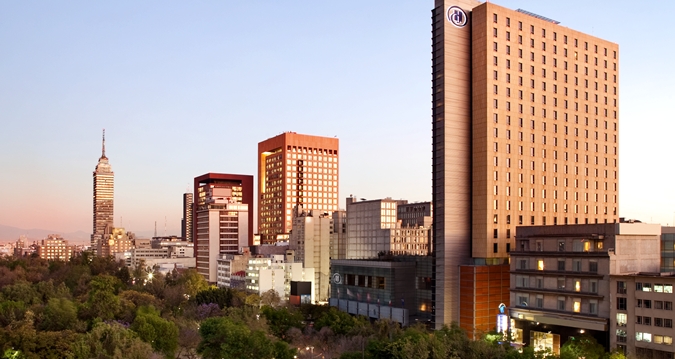
Hilton Reforma room rates:
Single: USD $158.00 per night (USD $188 including taxes)
Double: USD $175.00 per night (USD $208.25 including taxes)
* Other accommodation options will be available soon.
Travel to Mexico City
The LACC4/IGW events will be held in Mexico City and participants should fly into Mexico City airport (MEX). You may also fly into Toluca International Airport (TOL), which is about 1 hour away from Mexico City by taxi. Aeromexico is offering a 10% discount on international fares and a 15% discount on national fares for this event. To avail yourself of the discount, you must book via call center and use the conference code: IT15RGD7317N1. This discount is available on flights during the period 9-19 March 2018. These are the phone numbers of Aeromexico call centers in different countries:| Country | Phone number | Country | Phone number | |
|---|---|---|---|---|
| ARGENTINA | 0800 888 22 76 | ESPAÑA | 900 995 282 | |
| BRASIL | 0800 891 7512 | FRANCE | 0800 916 754 | |
| CHILE | Desde una red fija 188 800 581 600 | ENGLAND | 0 8009775533 | |
| Desde celulares 2599 43 78 | IRELAND | 1800855474 | ||
| COLOMBIA | 01-8009-520533 | CANADA | 18002376639 | |
| PERU | 080053407 | JAPON | 0570-783-057 | |
| HONDURAS | 80027919025 | CHINA | 0086 21 6089 9385 | |
| COSTA RICA | 0800 052 1447 | CHINA | 0086 21 6089 9985 | |
| GUATEMALA | 1 8008350269 | EL SALVADOR | 800 61 05 | |
| VENEZUELA | 800 162 7351 | MEXICO | 555133 4000 |
Satellite meetings
The Norman E. Borlaug Experiment Station, Ciudad Obregón (Sonora, northwestern Mexico) – Global Wheat Program Visitors’ Week (March 20-23)
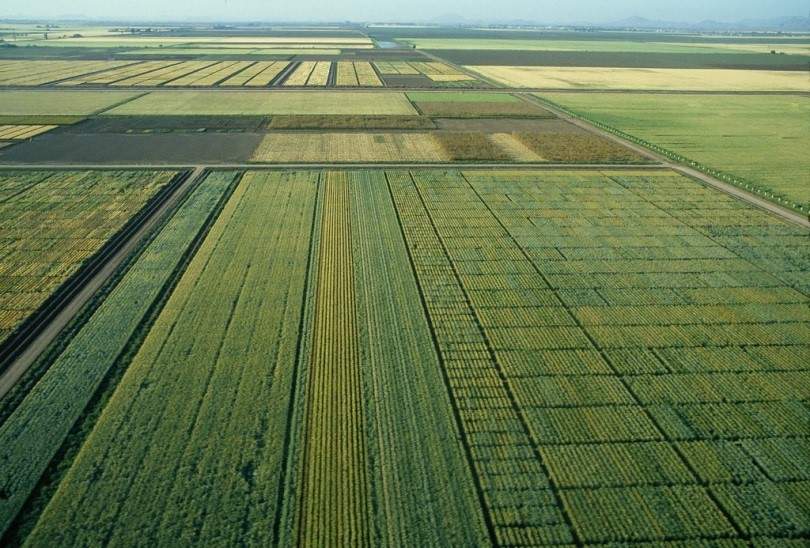
Located in the Yaqui Valley, an irrigated desert farm setting near Ciudad Obregón, Sonora state, in northwestern Mexico, the Norman E. Borlaug Experiment Station (CENEB, after its Spanish name Campo Experimental Norman E. Borlaug), is often called the Mecca of wheat scientists because of its weather and soil conditions, history, and the impact of the breeding research conducted there.
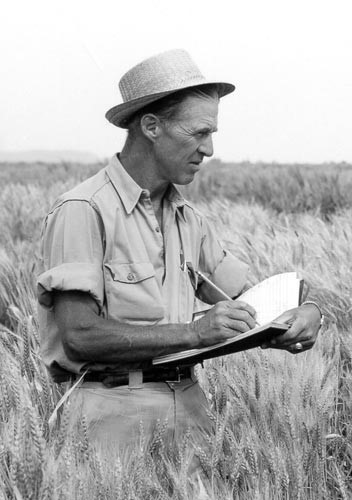
During the 1940s-50s, Dr. Borlaug and Mexican researchers, assistants, and Yaqui Valley farmers worked near this location to develop high-yielding, disease resistant wheat varieties that made Mexico self-sufficient for wheat and were soon adopted throughout South Asia, nearly tripling that region’s wheat output by the 1970s. Known as the Green Revolution, this phenomenal spread of improved varieties and farming practices---along with development model and ideals that supported it---led to the creation of international centers such as CIMMYT to eliminate food insecurity through applied science and partnerships.
In Mexico, the groundbreaking work of the Yaqui Valley team catalyzed a unique, long-standing partnership between the region’s farmers and public agricultural research institutions that continues to benefit national agriculture and CIMMYT’s globally targeted wheat research.
A direct result of that partnership was the establishment by southern Sonora farmers of CENEB, a world-class wheat research facility that also hosts offices of Mexico’s National Institute of Forestry, Agriculture and Livestock Research (INIFAP) and of the federation of Sonoran farmer associations known as Patronato, which owns the land on behalf of state farmers.
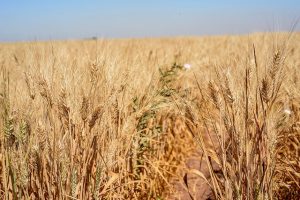
Weather conditions in the Yaqui Valley comprise long, extremely hot summers and short, warm winters with cool mornings. Average summer temperatures vary between 10° and 37° C, with rare cases of averages as low as 6° C or as high as 39° C. Day length varies significantly throughout the year, with 10:25 hours of daylight at winter solstice (20-21 December) and 13:53 hours of daylight at summer solstice (20 June). Average annual relative humidity is 69% and ranges between 62% and 75%. These conditions are ideal for selecting experimental wheat lines adapted to the diverse settings CIMMYT targets worldwide.
Thanks to the prevailing environmental conditions, excellent station management, well-maintained infrastructure, and the enduring support of local farmers and authorities, CENEB provides a unique, outstanding platform for research to enhance wheat yield potential, develop varieties with tolerance to drought and heat and resistance to diseases and pests, and to explore the physiological and genetic mechanisms underlying these and other traits.
In combination with CIMMYT’s experiment station near Toluca, state of Mexico, in the Mexican highlands, CENEB has contributed significantly to CIMMYT’s status as the primary public source of high-yielding, widely adapted wheat germplasm, currently used in nearly half of all wheat varieties worldwide and bringing annual economic benefits as high as $3.1 billion, while contributing to improved food security and livelihoods.
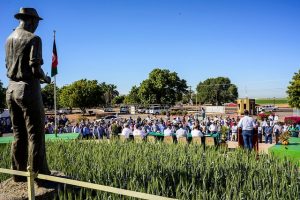
Once a year, during the CIMMYT Global Wheat Program’s Visitors Week in March, CENEB provides a vital platform for more than 100 wheat researchers, policymakers, students, journalists and others from dozens of nations to view wheat experiments in full bloom, share the latest in wheat science and development, and decide future collaborations. Held at the peak of the wheat growing season, the event provides an ideal setting for Mexican partners to feature advances and interact with peers from around the world. Participants typically include members of major international wheat research initiatives hosted at CENEB, including:
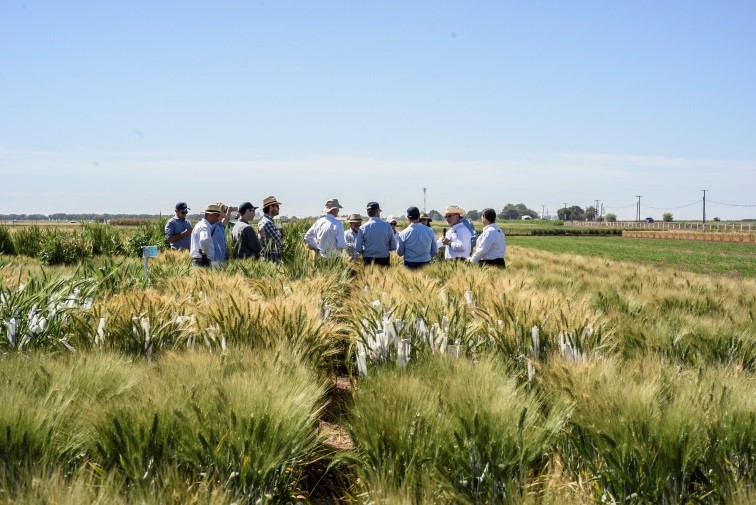
- The Borlaug Global Rust Initiative (BGRI), coordinated by Cornell University.
- The Delivering Genetic Gains in Wheat project, led by Cornell University and funded by the Bill & Melinda Gates Foundation and the UK Department for International Development (DFID).
- The International Wheat Yield Partnership (IWYP).
- USAID Feed the Future Innovation Lab for Applied Wheat Genomics.
In 2018 Global Wheat Program’s Visitors Week will be celebrated between March 20 and March 23. For any further information and registration for this event please contact Maria Teresa Rodríguez (M.T.RODRIGUEZ@CGIAR.ORG) and Carlos Guzmán (C.Guzman@cgiar.org).












